Supply chain attacks pose a unique danger to small businesses because they attempt to take advantage of already trusted software to steal information or launch further attacks. They can target any industry, and if companies do not work with an IT consultant or stay on top of cybersecurity news, then potential threats can easily slip into your business’ network during routine business operations. By being aware of supply chain attacks and implementing the right security tools, your business can be better prepared to catch and mitigate these threats. Here we want to talk about what a supply chain attack is and how your business can become best prepared to handle this unique threat!
How Does a Supply Chain Attack Work?

Rather than directly targeting a large number of businesses, malicious actors will look for weak points in the supply chain of an industry. This way, they can slip malicious code or malware into the supply chain before it makes its way to additional victims down the line. Often, third party vendors with weak cybersecurity are the best insertion point for hackers, and this causes problems when businesses can’t always know the cybersecurity infrastructure of their contractors. These attacks are particularly dangerous because they are versatile, and hackers can target the hardware, software, product, or service that offers the best chance for a successful attack.
Monitoring Supply Chain Threats

When it comes to protecting your business from third party threats, there are plenty of preemptive measures to take to catch a supply chain attack early or mitigate the effects of a successful one. The first step is to have a thorough understanding of where supply chain attacks are likely to come from for your business. If you work with contractors or receive resources from trusted services, your IT department or IT consultant should create a threat response plan in case a contractor becomes compromised. It is best to also stay on top of cybersecurity news in order to know as early as possible that malicious actors are targeting your industry with a supply chain attack!
Mitigation Strategies

Businesses can also implement more direct mitigation strategies that allow them to proactively mitigate potential threats posed by a supply chain attack. For example, third-party vendors can be required to provide security assessments on their network before signing a contract with your company. Your business should also ensure it has as much of its data as possible removed from a vendor’s system when your contract ends so that malicious actors can’t find data from old services. Additionally, your company can work together with an IT consultant to assess the risks in your industry and implement cybersecurity tools that have the best chance of keeping your company safe in the event of a supply chain attack.
Summary
Supply chain attacks are often difficult to detect and hard to proactively defend against before they happen. However, this doesn’t mean your business can’t take active steps to defend itself. By improving your company’s security posture and working with a small business IT consultant to stay informed on your industry, you can improve the odds that a supply chain attack will be caught early and appropriately mitigated. Our team here at Robinett Consulting believe small businesses deserve high quality IT consulting that gives them the tools they need to operate securely. Our security specialists are always available for a complimentary consultation to see how we can help your business avoid supply chain attacks and other cybersecurity threats in your industry!




